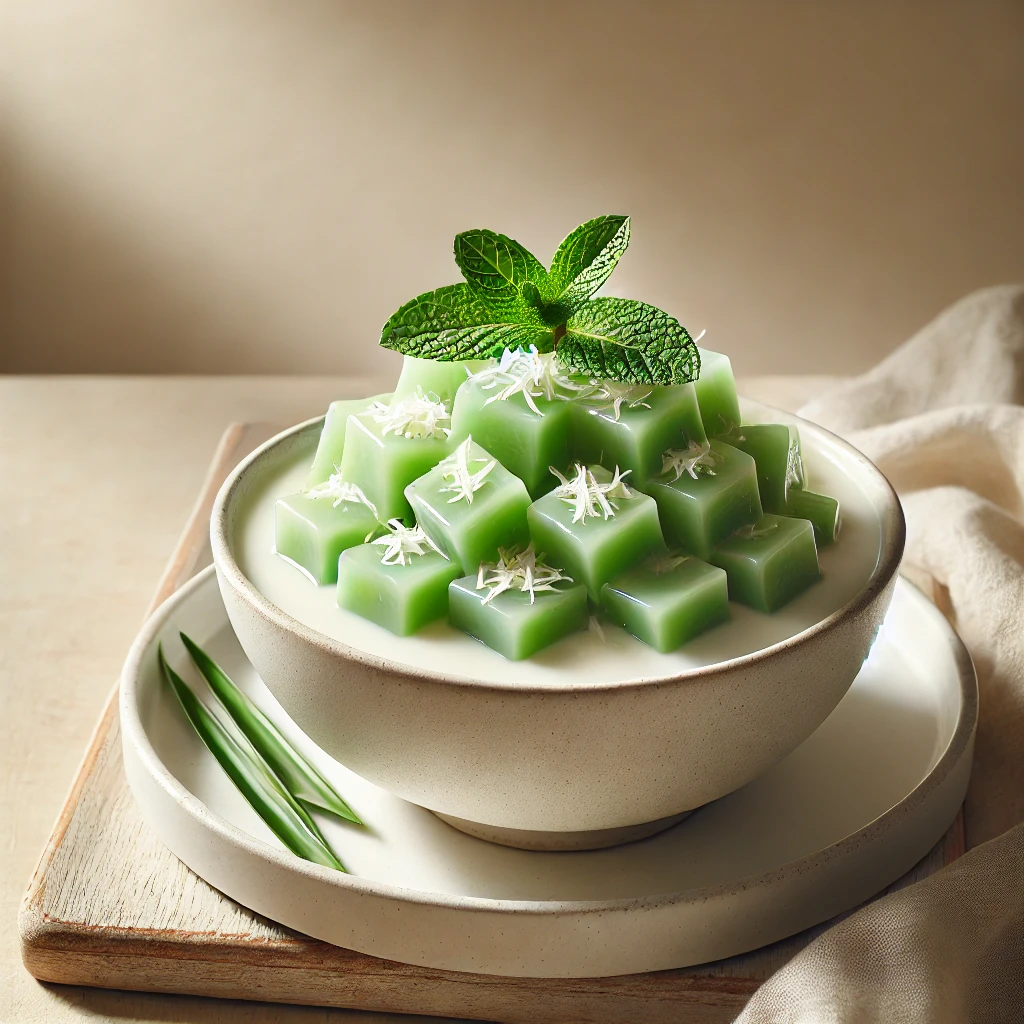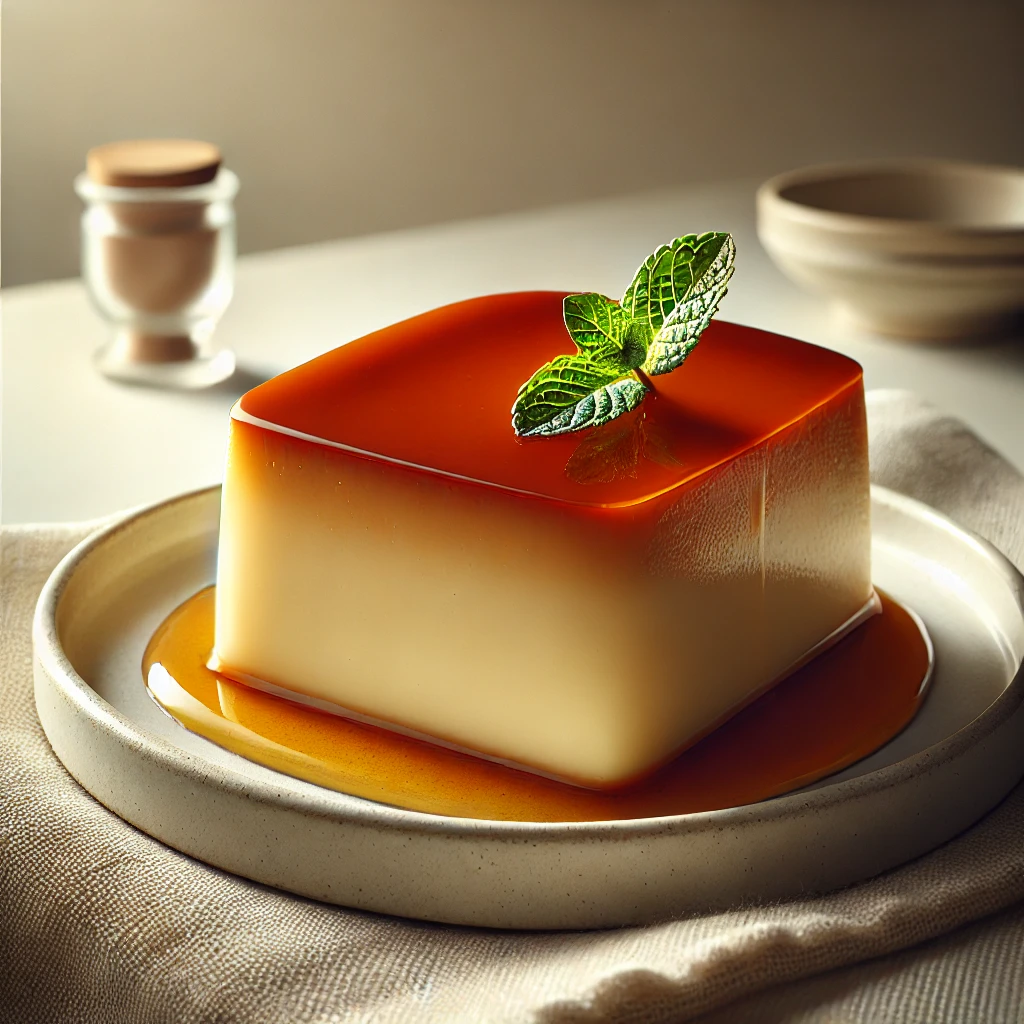Have you ever tasted a dessert that transports you to a tropical paradise with just one spoonful? If not, prepare to embark on a culinary journey with Buko Pandan, a beloved Filipino dessert that combines the luscious flavors of young coconut (buko) and aromatic pandan leaves. This refreshing treat is not just a dessert; it’s a celebration of Filipino culture and the abundance of tropical ingredients found in the archipelago.
Imagine yourself on a warm, sunny day in the Philippines, surrounded by swaying palm trees and the gentle sound of waves lapping at the shore. As you take your first bite of Buko Pandan, the creamy coconut melts in your mouth, while the subtle, grassy notes of pandan dance on your taste buds. It’s a perfect harmony of flavors and textures that will leave you craving more.
Buko Pandan is more than just a dessert; it’s a testament to the ingenuity of Filipino cuisine. This delightful concoction takes simple, locally-sourced ingredients and transforms them into a dessert that’s greater than the sum of its parts. The dish has become so popular that it’s a staple at Filipino gatherings, from birthday parties to holiday celebrations.
What makes this dessert truly special is its versatility. While traditionally made with young coconut and pandan leaves, modern variations have adapted to cater to various dietary restrictions. This recipe can be easily modified to be vegan-friendly by using plant-based milk and gelatin alternatives. For those watching their sugar intake, natural sweeteners can be substituted without compromising the dessert’s delightful flavors.
So, are you ready to bring a taste of the Philippines into your kitchen? Let’s dive into the world of Buko Pandan and create a dessert that will transport you to tropical bliss with every spoonful!
Recipe Ingredients
Before we start our culinary adventure, let’s gather all the ingredients we’ll need to create this luscious Buko Pandan dessert. Here’s a comprehensive list of everything you’ll need, along with some helpful substitutions for those hard-to-find items:
| Ingredient | Quantity | Substitution (if applicable) |
|---|---|---|
| Young coconut meat | 2 cups, shredded | Canned young coconut meat |
| Pandan leaves | 6-8 leaves | 1 tsp pandan extract or essence |
| Coconut water | 1 cup | Coconut milk diluted with water |
| Sweetened condensed milk | 1 can (14 oz) | Coconut condensed milk for a vegan option |
| All-purpose cream | 1 cup | Coconut cream for a dairy-free alternative |
| Gelatin powder | 2 tbsp | Agar-agar for a vegetarian/vegan option |
| Sugar | 1/2 cup | Adjust to taste or use a natural sweetener |
| Water | 2 cups | – |
| Sago pearls (cooked) | 1 cup | Tapioca pearls or nata de coco |
| Kaong (sugar palm fruit) | 1/2 cup | Omit if unavailable |
| Ice cubes | As needed | – |
Note: If you can’t find fresh young coconut, you can use canned young coconut meat and coconut water as a substitute. While it may not have the same fresh flavor, it’s a convenient alternative that still produces a delicious result.
Recipe Instructions
Now that we have all our ingredients ready, let’s dive into the step-by-step process of creating this heavenly Buko Pandan dessert. Follow these instructions carefully, and you’ll be rewarded with a creamy, fragrant treat that will transport you straight to the tropics!
Step 1: Prepare the Pandan Extract
- Wash the pandan leaves thoroughly and cut them into small pieces.
- In a blender, combine the pandan leaves with 1 cup of water.
- Blend until the leaves are finely chopped and the water turns green.
- Strain the mixture through a fine-mesh sieve or cheesecloth, reserving the green liquid.
- Set aside the pandan extract for later use.
Step 2: Make the Pandan Gelatin
- In a saucepan, combine 1 cup of water, 1/4 cup of sugar, and the gelatin powder.
- Heat the mixture over low heat, stirring constantly until the gelatin and sugar dissolve completely.
- Remove from heat and add 1/4 cup of the pandan extract.
- Pour the mixture into a shallow container and refrigerate until set (about 2-3 hours).
- Once set, cut the gelatin into small cubes.
Step 3: Prepare the Coconut Mixture
- In a large bowl, combine the shredded young coconut meat, coconut water, sweetened condensed milk, and all-purpose cream.
- Mix well and add the remaining 1/4 cup of sugar. Stir until the sugar dissolves.
- Taste and adjust the sweetness if needed.
Step 4: Assemble the Dessert
- In individual serving glasses or a large serving bowl, layer the ingredients as follows:
- Start with a layer of the coconut mixture
- Add a layer of pandan gelatin cubes
- Sprinkle some sago pearls and kaong
- Repeat the layers until all ingredients are used
- Chill the dessert in the refrigerator for at least 1 hour before serving.
Step 5: Serve and Enjoy
- Just before serving, add a few ice cubes to keep the dessert cold and refreshing.
- Garnish with a pandan leaf or a sprinkle of toasted coconut flakes if desired.
- Serve immediately and enjoy your homemade Buko Pandan!
Recipe Tips & Variations
To ensure your Buko Pandan turns out perfect every time and to cater to different preferences, here are some helpful tips and exciting variations:
Tips for Success:
- Fresh is best: If possible, use fresh young coconut for the most authentic flavor. However, if you’re using canned coconut meat, make sure to drain it well before using.
- Pandan power: For a more intense pandan flavor, you can steep the pandan leaves in hot water for 30 minutes before blending. This will extract more flavor from the leaves.
- Gelatin tips: If you’re using agar-agar instead of gelatin, remember that it sets more firmly. You may want to use slightly less than the recipe calls for to maintain a softer texture.
- Sweetness control: The sweetness of this dessert can be adjusted to your liking. Taste the coconut mixture before assembling and add more sugar or condensed milk if needed.
- Texture variety: For added texture, consider toasting some desiccated coconut and sprinkling it on top just before serving.
Exciting Variations:
- Buko Pandan Salad: Transform this dessert into a refreshing salad by adding cubed cantaloupe or honeydew melon to the mixture.
- Buko Pandan Ice Cream: Freeze the mixture in an ice cream maker for a delightful frozen treat. Add some crushed pandan gelatin during the last few minutes of churning for a delightful texture.
- Buko Pandan Smoothie: Blend the coconut mixture with some ice for a refreshing drink. Add a scoop of vanilla ice cream for an indulgent twist.
- Vegan Buko Pandan: Use coconut condensed milk and coconut cream instead of dairy products. Replace gelatin with agar-agar for a completely plant-based dessert.
- Buko Pandan Cake: Use the coconut and pandan mixture as a filling between layers of vanilla sponge cake for a show-stopping dessert.
Storage Instructions:
Buko Pandan is best enjoyed fresh, but if you have leftovers, you can store them in an airtight container in the refrigerator for up to 2 days. The gelatin may soften over time, but the flavor will still be delicious. Give it a gentle stir before serving.
Nutritional Information
While Buko Pandan is undoubtedly a treat, it’s always good to be aware of its nutritional content. Here’s an approximate breakdown of the nutritional information per serving (based on 6 servings):
| Nutrient | Amount per Serving |
|---|---|
| Calories | 320 |
| Total Fat | 18g |
| Saturated Fat | 15g |
| Cholesterol | 25mg |
| Sodium | 85mg |
| Total Carbohydrates | 38g |
| Dietary Fiber | 2g |
| Sugars | 32g |
| Protein | 4g |
Please note that these values are approximate and may vary depending on the specific brands of ingredients used and any modifications made to the recipe.
Conclusion
As you take your last spoonful of this creamy, fragrant Buko Pandan, I hope you’ve been transported to the sun-soaked beaches of the Philippines, even if just for a moment. This dessert is more than just a treat for your taste buds; it’s a celebration of Filipino culinary heritage and the simple joys of tropical flavors.
I remember the first time I tasted Buko Pandan at a Filipino friend’s house. The unique combination of young coconut and pandan was unlike anything I had experienced before. The creamy texture, the subtle green hue, and the aromatic flavor left such an impression that I knew I had to learn how to make it myself. Now, every time I prepare this dessert, it brings back fond memories of that first encounter and the warmth of Filipino hospitality.
I encourage you to try this recipe and make it your own. Experiment with the variations, adjust the sweetness to your liking, and don’t be afraid to put your own spin on it. Cooking is an adventure, and this Buko Pandan recipe is your ticket to a tropical culinary journey.
Once you’ve made your Buko Pandan, I’d love to hear about your experience! Did you stick to the traditional recipe, or did you try one of the variations? How did your family and friends react to this Filipino dessert? Share your stories, photos, and any tips you discovered along the way. Your feedback not only helps me improve the recipe but also inspires other readers to embark on their own Buko Pandan adventure.
And remember, the world of Filipino desserts doesn’t stop at Buko Pandan. If you enjoyed this recipe, why not explore other tropical treats like Halo-Halo, Leche Flan, or Maja Blanca? Each dessert offers a unique glimpse into the rich tapestry of Filipino cuisine.
So, grab your ingredients, channel your inner Filipino chef, and let’s continue this sweet journey together. Who knows? Buko Pandan might just become your new favorite dessert!
Disclaimer: This recipe is based on traditional methods and ingredients available up to 2019. Nutritional information is approximate and may vary. If you notice any inaccuracies in this post, please report them so we can correct them promptly.




